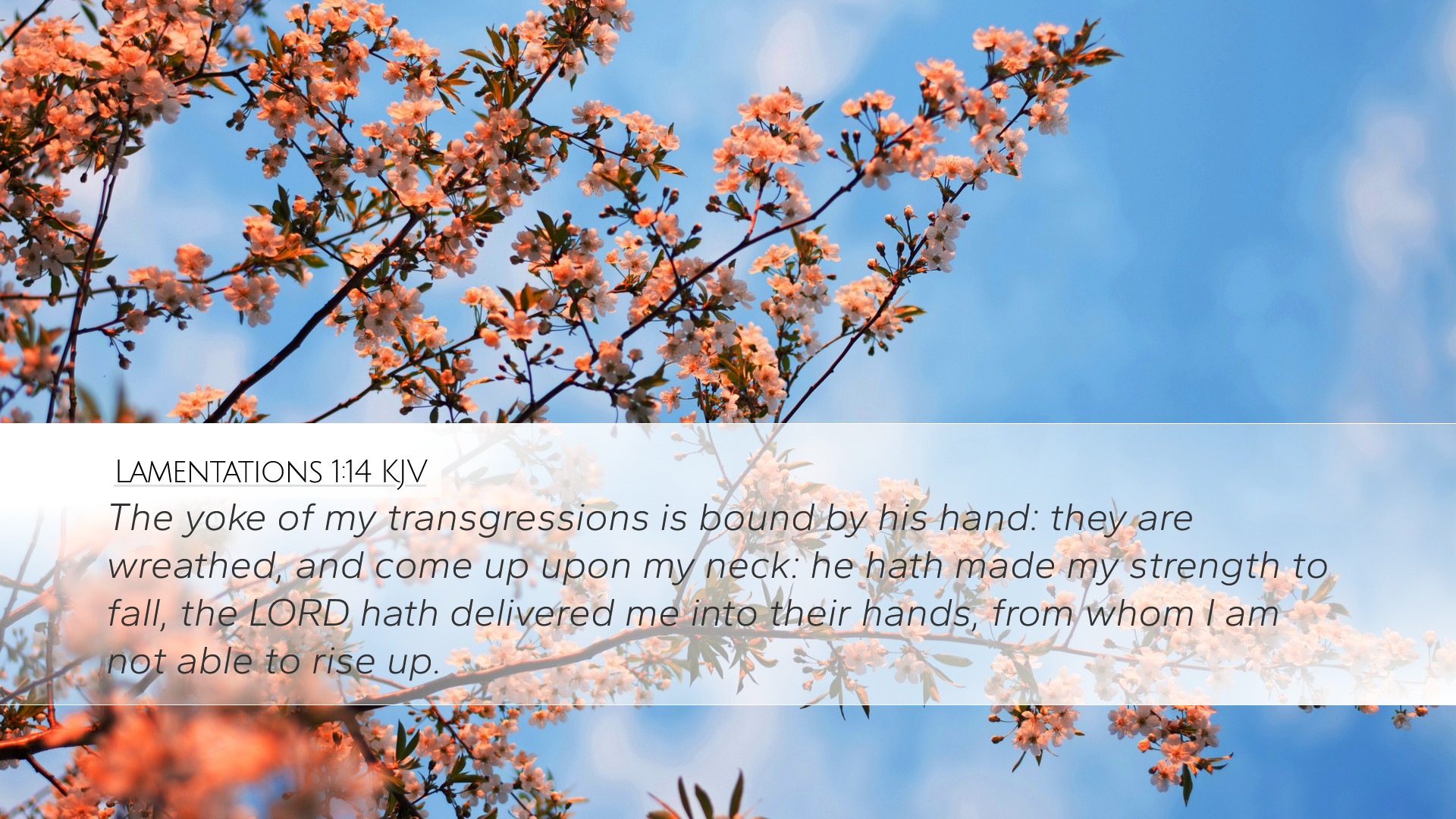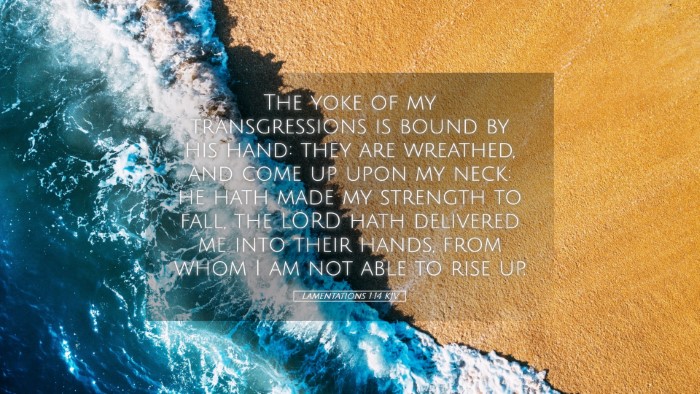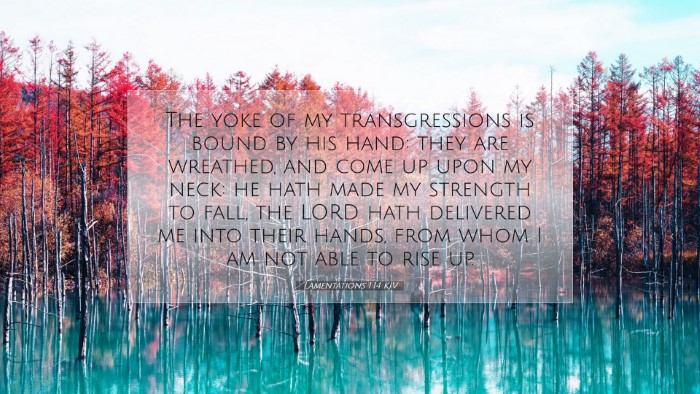Lamentations 1:14 - Commentary
Lamentations 1:14 states: "The yoke of my transgressions is bound by His hand; they are woven together and come upon my neck; He has made my strength fail; the Lord has delivered me into the hands of those whom I cannot withstand." This verse captures the profound sorrow and lamentation over the condition of Israel after the destruction of Jerusalem. In these reflections, we will delve into the insights garnered from various public domain commentaries, exploring the theological implications and the emotional depth of this scripture.
Contextual Overview
The Book of Lamentations is traditionally attributed to the prophet Jeremiah, expressing grief over the fall of Jerusalem and the suffering of its people. This lament is not only historical but also deeply personal, reflecting the anguish of a people in exile and despair. The imagery of a yoke symbolizes the burden of sin and the resulting divine judgment upon the nation.
Exegesis of the Verse
This verse begins with the metaphor of a yoke: "The yoke of my transgressions is bound by His hand." Here, the yoke represents the weight of sin, which becomes particularly significant when viewed through the lens of divine justice. Matthew Henry notes that sin becomes a heavy burden, like a yoke, leading to enslavement and suffering. This divine correction is not arbitrary; rather, it serves as a manifestation of God's holiness and justice.
The Yoke of Transgressions
The imagery implies an inescapable connection between the sin of the people and their ensuing punishment. Adam Clarke remarks on the use of "my transgressions," indicating a personal admission of guilt. The emphasis on "my" suggests a collective recognition of sin among the Israelites, moving beyond mere national identity to individual accountability before God.
Bound by His Hand
The phrase "is bound by His hand" highlights the sovereignty of God in the judgment process. Albert Barnes addresses this divine action, emphasizing that the Lord’s hand is both commanding and constraining. The yoke being placed upon the neck serves not just to signify punishment but also to denote the active role of God in the affairs of humanity. His hand binds and disciplines, pointing towards a purpose within this punitive measure.
The Weight of Sin
As the verse continues with "they are woven together and come upon my neck," there is a connotation of entrapment and the composite nature of transgression. Matthew Henry elaborates that this 'weaving' together can signify the complexity and interconnectedness of sin, making it feel all the more burdensome upon the soul.
Failure of Strength
The lament reaches a climax with "He has made my strength fail." This failure signifies not only a physical weakness but a deeper spiritual collapse. The nation’s reliance on their own strength or military might has crumbled. Clarke notes that this loss of strength further reflects the futility of attempting to withstand divine justice, especially when divine will is against them.
Divine Deliverance into Oppression
The last part of the verse, "the Lord has delivered me into the hands of those whom I cannot withstand," brings forth a somber acknowledgment. This divine deliverance is not merely punitive but speaks to the dire consequences of straying from God’s ways. Barnes comments on the irony that the very God who has the power to deliver can also permit the faithful to face overwhelming foes as a form of chastisement.
Spiritual Reflection
For pastors and scholars, this verse serves as a poignant reminder of the necessity of repentance and the grave consequences of unrepentant sin. It articulates the emotional landscape of those in mourning, grappling with loss, and the need for divine grace amidst suffering. There is also an invitation to reflect on the personal and communal dimensions of transgression and how they shape the collective experience of God’s people.
Theological Implications
Lamentations 1:14 serves as a theological ruminative point for understanding justice and mercy within the framework of God's character. The pain expressed here does not negate God’s love; rather, it highlights a profound truth—that sin carries consequences, and the path to restoration begins with acknowledging these wrongs.
Conclusion
In closing, Lamentations 1:14 is rich with insight into the human condition in light of divine justice. As we reflect on this verse, we are reminded of the need for vigilance in our spiritual walk, the reality of sin’s effects, and the grace that awaits the truly penitent heart. For pastors, students, theologians, and Bible scholars, these reflections provide fertile ground for further exploration of the balance between judgment and redemption in the Biblical narrative.


